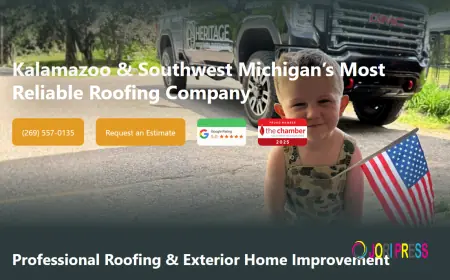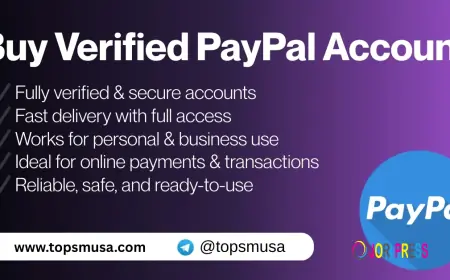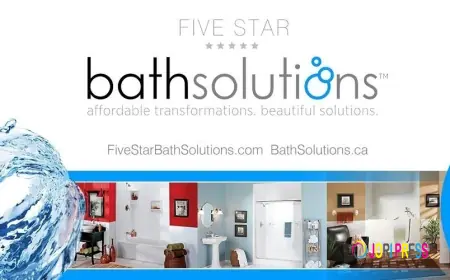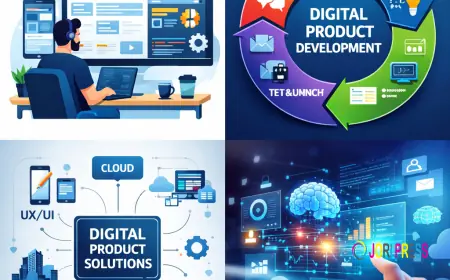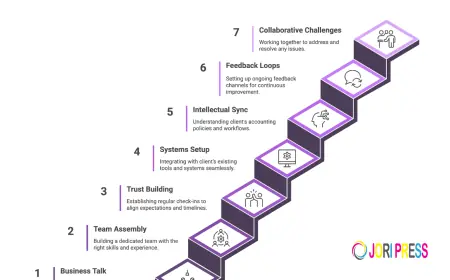What to Look for in an E-commerce Marketing Company
A skincare brand had everything going for it. Great packaging. Clean ingredients. A loyal social following. Yet, sales stalled. Every campaign looked promising, but failed to convert. Revenue dipped, ad costs rose, and in-house efforts hit a wall.
They finally partnered with an e-commerce marketing company. Within 60 days, conversions doubled. AOV went up by 29%, and retargeting brought back 38% of abandoned carts. The product didn’t change. The strategy did.
The right agency didn’t just market, it made the product sell. That’s the difference a focused partner brings: outcomes, not just activity.
Why Choosing the Right Agency Matters
Not all agencies understand e-commerce. Some focus on vanity metrics. Others push traffic without tracking conversions. Many offer generic services that dilute results.
An experienced e-commerce marketing company builds every campaign with one goal: sales. They align brand goals, buyer behavior, and platform-specific strategy. More importantly, they track what works and cut what doesn’t.
Without that expertise, businesses burn through budget and time. With it, they build systems that compound results month after month.
Signs That an Agency Specializes in E-commerce
Surface-level promises aren’t enough. A true e-commerce partner shows depth in execution. They speak in metrics that tie to growth: ROAS, AOV, CAC, not just likes or reach.
Look for agencies that ask strategic questions early. They should want to understand shipping models, cart abandonment rates, customer lifecycle, and inventory priorities. If they don’t ask, they’re not ready to deliver results.
Here’s what usually sets them apart:
-
Deep experience in Shopify, WooCommerce, or headless builds
-
Clarity in funnel mapping and retargeting plans
-
Strong portfolio with e-commerce client case studies
-
Conversion-focused creative, not just aesthetic work
Strategy First, Then Creative
Creativity without direction is just noise. A strong e-commerce marketing company starts with data, not mood boards. Strategy leads. Creative follows.
They use performance metrics to drive content ideas, not the other way around. This ensures campaigns aren’t just catchy, they’re profitable. Ads are mapped to funnel stages. The content matches audience intent. And headlines trigger action, not just emotion.
The most effective creative isn’t the most beautiful, it’s the one that gets results. The strategy makes that possible.
Key Services a Top E-commerce Marketing Company Offers
While services vary, high-performing agencies typically cover three crucial areas. Each service must align with business goals and be backed by measurable KPIs.
1. Paid Media Management
Platforms like Meta Ads, Google Shopping, and TikTok are powerful. But without campaign structure, targeting, and testing, they lose money fast.
2. Conversion Rate Optimization (CRO)
Clicks mean nothing if landing pages don’t convert. CRO focuses on the user journey, from product pages to checkout, ensuring friction is reduced.
3. Email & Retention Marketing
Most revenue doesn’t come from first-time buyers. Lifecycle emails, welcome flows, cart recovery, and post-purchase sequences are critical to sustaining sales.
Performance Tracking That Goes Beyond Vanity Metrics
It’s easy to report impressions. It’s harder to connect marketing efforts to revenue. A quality e-commerce marketing company uses attribution tools, pixel tracking, and detailed dashboards that map every dollar spent to every dollar earned.
What they measure:
-
Return on ad spend (ROAS)
-
Customer acquisition cost (CAC)
-
Customer lifetime value (LTV)
-
Conversion rate by funnel stage
-
Channel-specific performance (Meta vs. Google vs. Email)
Warning Signs to Watch Out For
Not every agency is built to scale e-commerce brands. Some overpromise and underdeliver. Others lack the backend structure to support complex campaigns.
If these red flags appear, it’s time to walk away:
-
Vague or recycled strategies
-
No experience in e-commerce-specific platforms
-
Focus on “impressions” or “reach” as success indicators
-
Poor or delayed reporting cycles
-
No structured testing framework for creative or targeting
Creative That Converts, Not Just Flatters
High-converting creative does more than look nice. It solves problems, triggers urgency, and makes the product feel essential.
Great agencies know this. They build creative systems rooted in testing and iteration. A single creative gets multiple versions. Each version is tracked for scroll time, click-through rate, and post-click performance.
Here’s what effective creative typically includes:
-
Bold product-in-use visuals
-
Benefit-driven copy in the first 3 seconds
-
Clear offer or CTA
-
UGC-style content that builds trust
-
Mobile-first formatting for all placements
Campaign Testing That Drives Results
Without testing, ad budgets are educated guesses. A revenue-focused e-commerce marketing company uses structured frameworks to improve performance with each iteration.
Here’s how they typically run tests:
-
Isolate variables: Only test one element per ad set
-
Run tests long enough for statistical significance
-
Track across funnel stages: not just clicks, but conversions
-
Use winning creatives to build new variations
How Top Agencies Align With Brand Growth Goals
Short-term hacks don’t build long-term brands. The best agencies align with a brand’s growth targets, product roadmap, and margin structure.
They create marketing calendars based on inventory, launches, and seasons. They time and spend time to support operational capacity. They communicate proactively because scaling too fast or too soon breaks more than it builds.
When a brand grows with a partner who understands both sales and strategy, growth feels stable, not chaotic.
Questions to Ask Before Hiring an Agency
Hiring without vetting leads to misalignment. Brands should come prepared with questions that reveal capability and compatibility.
Ask:
-
What’s your experience with similar product categories?
-
How do you structure campaigns for the top, middle, and bottom of the funnel?
-
What metrics do you track weekly, and why?
-
Can you share real performance data, not just testimonials?
-
How often do you refresh creatives and test new angles?
If an agency can’t answer clearly, they aren’t ready to build for scale.
When It’s Time to Hire a Pro
Timing matters. Brands often wait until results crash before seeking help. But by then, the damage is done, and recovery is harder.
The ideal time to hire an e-commerce marketing company is:
-
When you’re ready to scale beyond founder-led marketing
-
When ad performance plateaus despite a strong product/offer
-
When team bandwidth is maxed out
-
When growth goals outpace in-house capability
Early-stage hiring can prevent months of wasted spend. It turns potential into actual growth.
Conclusion
Campaigns don’t convert just because they’re live. They convert because they’re built with intention, backed by data, and optimized by people who understand what drives a buyer to act.
An e-commerce marketing company isn’t a creative studio. It’s a performance partner. The best ones create systems that build momentum and scale responsibly, turning strategy into sales, not just style.
Brands that win don’t gamble on results. They work with experts who make results repeatable.
What's Your Reaction?
 Like
0
Like
0
 Dislike
0
Dislike
0
 Love
0
Love
0
 Funny
0
Funny
0
 Angry
0
Angry
0
 Sad
0
Sad
0
 Wow
0
Wow
0

